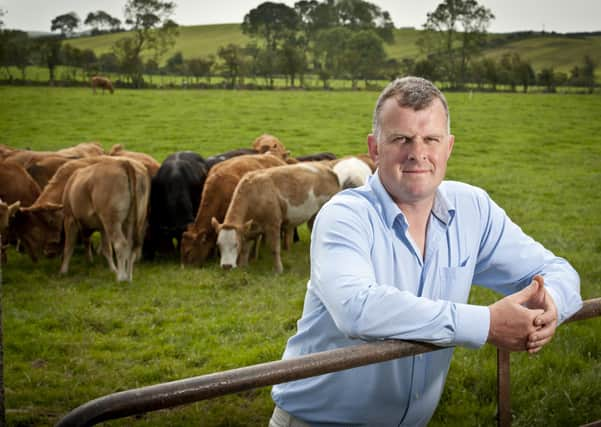‘Focus on Farmers’ is very proving popular


The webinar series is hosted by AgriSearch for the European Innovation Initiative (EIT) partners.
The partners are ABP and John Deere along with Queen’s University and the University of Reading. The theme for the fourth episode was accelerating the journey towards achieving net zero carbon beef production. Sam Chesney from County Down opened the meeting by detailing the steps he has taken to reduce carbon output on his beef farm, including the selection of high genetic breeding bulls to enhance net food efficiency, and other mitigation methods such as encouraging taller growth of hedgerows and feeding homegrown protein sources to cattle.
Advertisement
Advertisement
Following this, John Gilliland delivered a presentation on how carbon has been measured on the Devenish Estate in Dowth, Co. Meath through the use of various innovation technologies in order to implement different mitigation strategies. He described the use of LiDAR technology and GPS mapping and how this has benefitted in setting baselines to measure the progress in the attempt to reduce carbon output on the estate. John highlighted the importance of recording and reporting the net farm GHG emissions rather than the gross emissions that are typically reported.
James Evans shared the results of the carbon calculations carried out on his farm in Shropshire in February 2020, again highlighting the importance of recording the carbon sequestration on farm. He detailed how he aims to reduce his carbon footprint though various aspects of organic beef production.
The theme for the fifth episode was “Adapting to a changing world, a focus on sustainable parasite control and the evolution of animal welfare concepts”. Professors Eric Morgan and Gareth Arnott from Queen’s University were invited to share their expertise as guest speakers alongside ambassador farmers Sam Chesney and James Evans from Shropshire.
Sam led the meeting with an insight into practices he follows to control the risk of parasites in cattle on his farm, stating the importance of keeping healthy and happy stock. Addressing the welfare aspect of the episode, Sam described his use of a quiet crush to minimise stress in his stock and how he maintains blade cattle within social groups throughout their time on the farm.
Advertisement
Advertisement
Following Sam’s opening, Professor Eric Morgan delivered an insightful presentation on ‘Parasites, resistance and climate change’. He advised a need to move forward in attempts to control worms on farms as a result of increasing anthelmintic resistance and the effect climate change is having on worm lifecycles. He discussed environmental considerations and new technologies available to predict outbreaks on pasture.
Leading on from a round of questions from the audience, James Evans gave a brief talk on the control of parasites on his organic farm in Shropshire, paying particular attention to how he has improved dung beetle populations on farm. James addressed the need to produce high quality products with animals having a high quality of health and welfare, stating how this is essential for consumer perception as well as meat quality.
Dr Gareth Arnott presented some findings from animal welfare and behaviour studies during his presentation on ‘Animal Welfare in a Changing World’. He addressed the idea of ensuring animals have a “life worth living” and demonstrated some indicators of positive welfare, such as play behaviour in calves.
He described how the use of innovative technologies can improve welfare and health of stock on farms, as well as the outcomes of a study which looked at how behaviour and animal handling can impact meat quality.
Advertisement
Advertisement
Recordings of both webinars are available to view on the AgriSearch website and YouTube channel.
The next event in the series will take place on Monday, October 19 at 8pm and will focus on the eating quality of beef. The guest speaker will be Professor Nigel Scollan from Queen’s University.